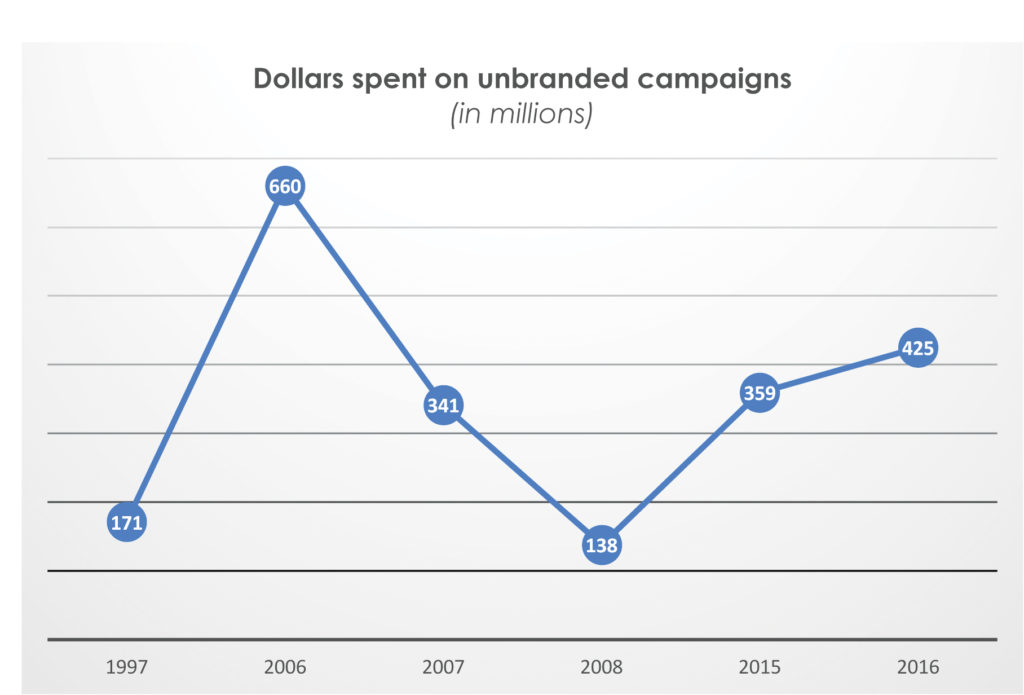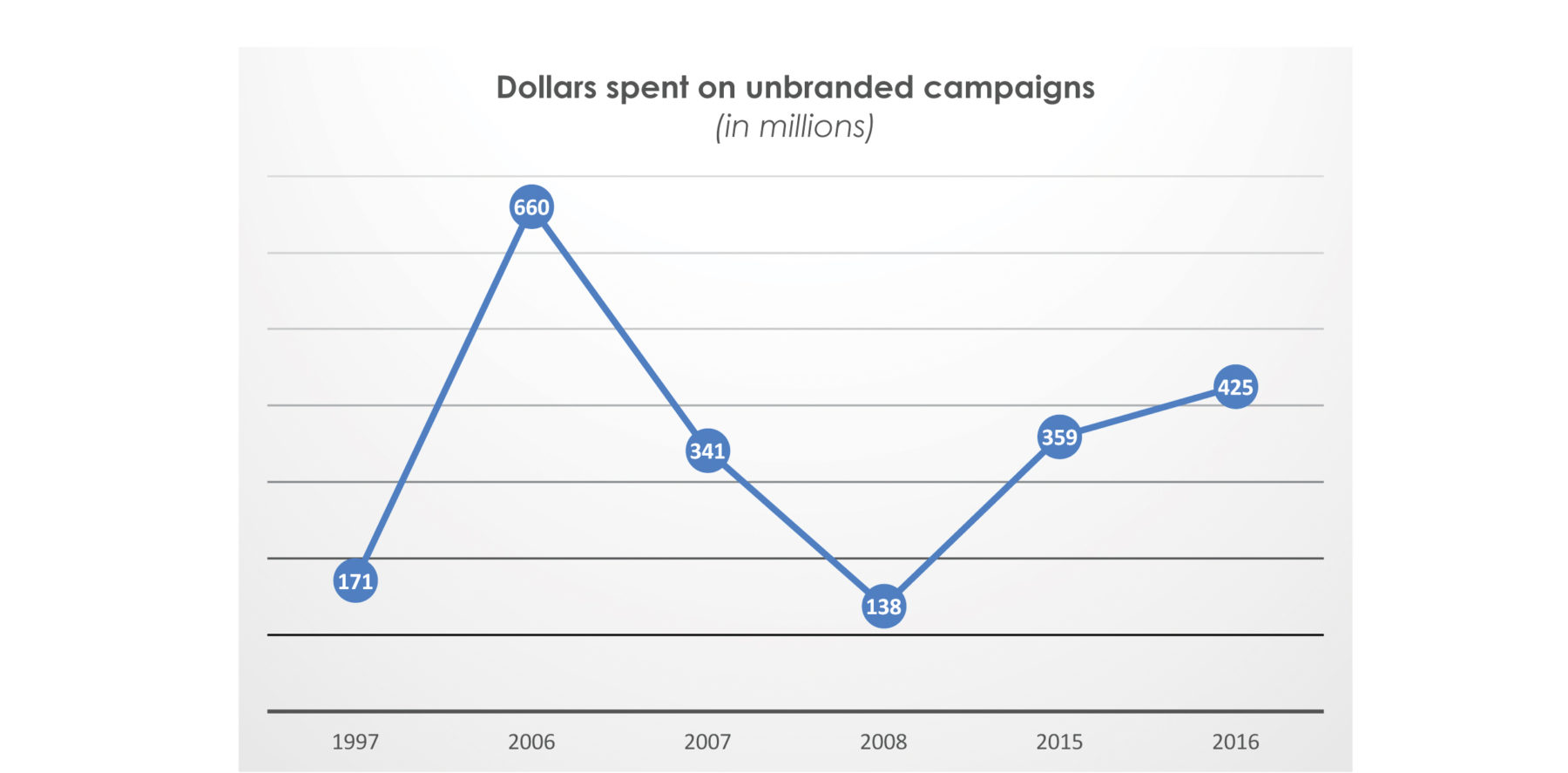Investing in an unbranded campaign elicits more anxiety than necessary. It is not a “gamble” if it is done correctly. In fact, when an unbranded campaign vigorously hones in on a specific unmet need that can ultimately direct HCPs to your brand—it is essential. It is worth its weight in gold, and it will indelibly illuminate the reasons to prescribe your product.
Yet marketers still wring their hands in indecisive sweat when it comes to the question of whether to develop an unbranded disease education campaign. Do we allot a precious portion of our budget toward a campaign that does not overtly market our product, they ask? How can we be sure that an unbranded campaign will ultimately translate into greater prescription volume when we never even mention the product’s name?
The problem with this mentality is that it assumes HCPs care at all about your brand. Your product’s branding and its carefully crafted logos do not govern HCPs’ prescribing decisions. The reality is that HCPs do not see your brand as anything more than a means to an end. At the outset, your brand’s value proposition is not crystallized. And if you do not control the message, it will be controlled by a ravenous competitor.
Which is why an unbranded campaign can deliver to HCPs the type of information that will challenge them to overcome clinical inertia, reconsider their accepted protocols, and deviate from the status quo, thus kindling a kinetic interest in elevating patient care benchmarks.
Above all, an unbranded campaign must highlight a crisply defined unmet need that your product will in some way address. The key to achieving a return on an unbranded initiative is to identify, and then capitalize on, the clinical pain points that will drive HCPs directly to your product. And when done well, an unbranded campaign can set your product up for success in ways that a branded campaign cannot.
Sophisticated marketers will capitalize on an opportunity to grow the market in which they will compete. They can:
1. Drive Diagnosis through Disease Awareness
“My brand is indicated for a well-known and prevalent condition—there is no need to focus efforts on disease education.”
“My brand isn’t the only drug on the market. If we do an unbranded campaign, we cannot guarantee that our competitors will not benefit from it.”
Reject these misguided objections, and ask yourself: Is your goal to bring attention to an underdiagnosed disease? Or is your goal to accentuate a specific (and perhaps overlooked) nuance of the disease that supports adoption of your brand?
Virtually every product has a unique selling point waiting to be extracted and promoted. It doesn’t matter if your drug is fifth to market or if it hasn’t demonstrated any overt efficacy benefit over existing products. There is almost certainly something about your product that will help patients in a way no other product can. And prelaunch is the time to celebrate that “something” with an unbranded campaign.
Find the niche. This is a golden opportunity to highlight the unmet clinical need to which your brand will ultimately and uniquely lay claim.
2. Highlight the Pathophysiology and Burden of a Specific Disease
An unbranded campaign that elucidates a particular aspect of the underlying pathophysiology of a disease is nothing short of obligatory when launching an agent with a novel MOA.
Not only is content around a new pathway or therapeutic target irresistible to an HCP, but an unbranded educational campaign lays the groundwork for introducing your product as the solution to a clinical unmet need. It gives HCPs the information they need to justify their decision to choose a treatment with limited “real-world” experience.
3. Enhance Corporate Reputation
Not everyone is familiar with the inspired research behind every drug developed, and as such, the pharma industry can be susceptible to demonization. In a time when drug manufacturers are scrutinized for their level of social responsibility, unbranded campaigns are a platform for educating while also propagating credibility by advocating partnerships and a commitment to patient care.
Create an Unbranded Strategy
The popularity of unbranded campaigns has notably fluctuated in the past 20 years, with spending shifting by as much as hundreds of millions of dollars from year to year (see figure below).1,2
 Maybe this suggests a push-pull of willingness to take the unbranded plunge.
Maybe this suggests a push-pull of willingness to take the unbranded plunge.
Or maybe it is a barometer for the competitive stampede to mark territories in a landscape where drug approvals hit a 21-year high in 2017.
Regardless of the reason, the fact of the matter is that an unbranded campaign is only as good as the strategy behind it.
Know your market. Identify the unmet need. Lay the foundation. Control the story. And your unbranded campaign will make your brand an unequivocal success.
In the words of Mark Twain: “Don’t be afraid to go out on a limb—that’s where the fruit lies.”
Resources:
1. Liesse J. “A Healthy Ad Market.” Advertising Age. October 17, 2016:5-9. http://gaia.adage.com/images/bin/pdf/KantarHCwhitepaper_complete.pdf. Accessed September 7, 2018.
2. Edwards J. “Unbranded Ads Also Unpopular.” AdWeek. October 1, 2008. https://www.adweek.com/brand-marketing/unbranded-ads-also-unpopular-104618. Accessed September 7, 2018.








